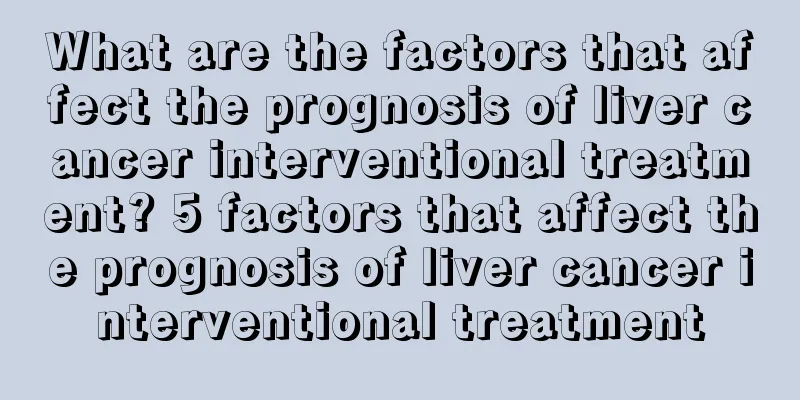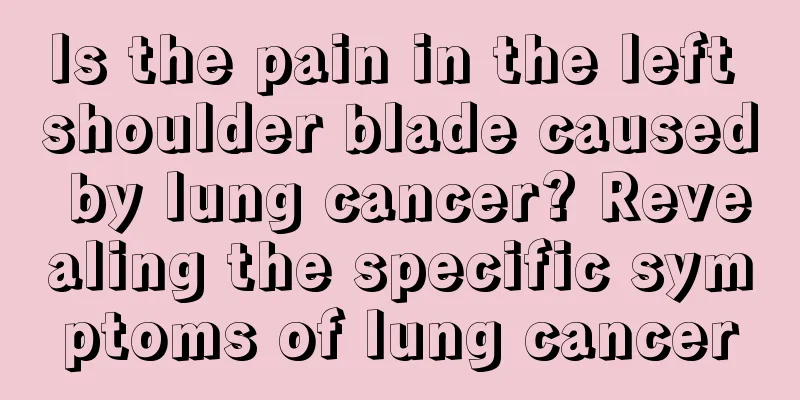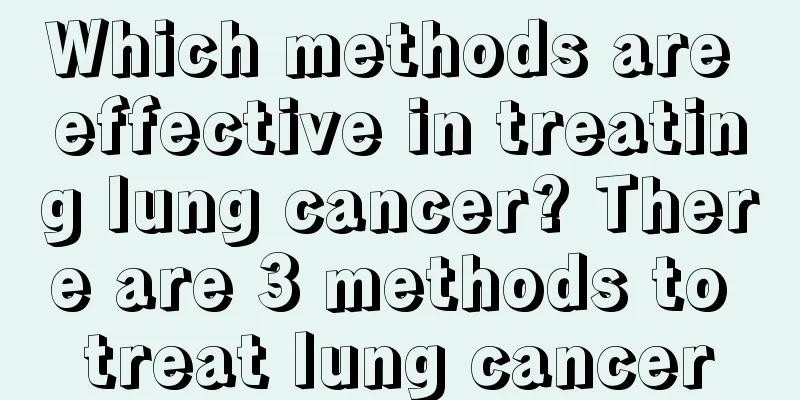What are the factors that affect the prognosis of liver cancer interventional treatment? 5 factors that affect the prognosis of liver cancer interventional treatment

|
There are many factors that affect the prognosis of liver cancer interventional treatment. Although many literatures involve these factors, different conclusions drawn from different experiences are bound to be different. 466 Oncologists believe that the factors that affect prognosis are tumor type, clinical stage, treatment method, patient's condition, portal vein cancer thrombus, etc. (1) Tumor type: ① Tumor cell type and blood supply. Hypervascular and multivascular tumors have better prognosis than hypovascular tumors. Hepatocellular carcinoma is mostly the former, while cholangiocarcinoma is mostly the latter. Therefore, hepatocellular carcinoma has a relatively good prognosis. ② Tumor boundary and capsule. Tumors with clear boundaries and capsules are better. ③ Tumor size. The smaller the better. Tumors under 5 cm have better prognosis than those over 5 cm. ④ Tumor range. Tumors with localized tumors are better. ⑤ Patients with obvious arteriovenous fistulas are worse. The larger the range, the worse. (2) Clinical staging: Patients with lymph node metastasis and distant metastasis have a poor prognosis. Patients who take active treatment for metastatic lesions (including interventional therapy, radiotherapy, surgery, etc.) have a better prognosis than those who give up treatment. (3) Treatment methods: ① Interventional treatment, TAE is better than TAI, and the combined application of multiple methods is better; ② Iodized oil filling or peripheral embolization, the more complete the better the prognosis; ③ Treatment interval, the better the better; ④ The use of appropriate comprehensive treatment, the better the prognosis. (4) Patient's condition: ① Liver foundation: the milder the liver cirrhosis, the better; patients with normal liver function are better; ② Concomitant lesions: patients with severe concomitant lesions have a poor prognosis; ③ Age: older patients are better than younger patients; patients around 60 years old often have better therapeutic effects; ④ Psychological factors: patients with cheerful personalities and strong wills have a better prognosis; patients who combine work and rest have a better prognosis; ⑤ Patients with better overall condition have a relatively good prognosis. (5) Portal vein cancer thrombus: The treatment effect of cancer thrombus in the main portal vein is poor, while the treatment effect of cancer thrombus in branches is better than that in the main portal vein. The prognosis of patients who are treated is better than that of those who are not treated. The prognosis of patients who receive appropriate embolization therapy is significantly better than that of those who do not receive embolization. |
Recommend
The harm of sweat steaming
Steaming is a kind of health care method for leis...
What is the effect of glucose infusion
Glucose infusion definitely has many effects on p...
What are the causes of ovarian tumors?
What causes ovarian tumors? Ovarian tumors are pa...
What to do if your hands and feet sweat a lot
When your hands and feet sweat a lot, you need to...
Is it good for the placenta to be located at the bottom of the uterus?
The placenta is located at the fundus of the uter...
How to knit a scarf
Knitting a scarf is actually one of the favorite ...
Why do I feel tired when I dream as soon as I fall asleep?
Generally, people tend to dream during deep sleep...
The process of uterine cancer
When the cervical epithelial metaplasia process i...
How much sleep does a 28 month old baby need?
A 28-month-old baby is already more than two year...
What are the treatments for glioma
Glioma, also known as glioma, or glioma for short...
Could persistent stomach pain be stomach cancer?
Persistent stomach pain is not necessarily gastri...
Can pharyngitis cause chest tightness and shortness of breath?
As we all know, pharyngitis is an inflammation of...
I was pregnant for more than 5 months and got advanced colorectal cancer. What should I do?
Colorectal cancer refers to malignant lesions of ...
How to diagnose occult testicular cancer
The symptoms of testicular cancer are not obvious...
What symptoms will appear if you have lung cancer? 4 lung cancer symptoms to watch out for
Lung cancer is now a common disease, so we must p...









